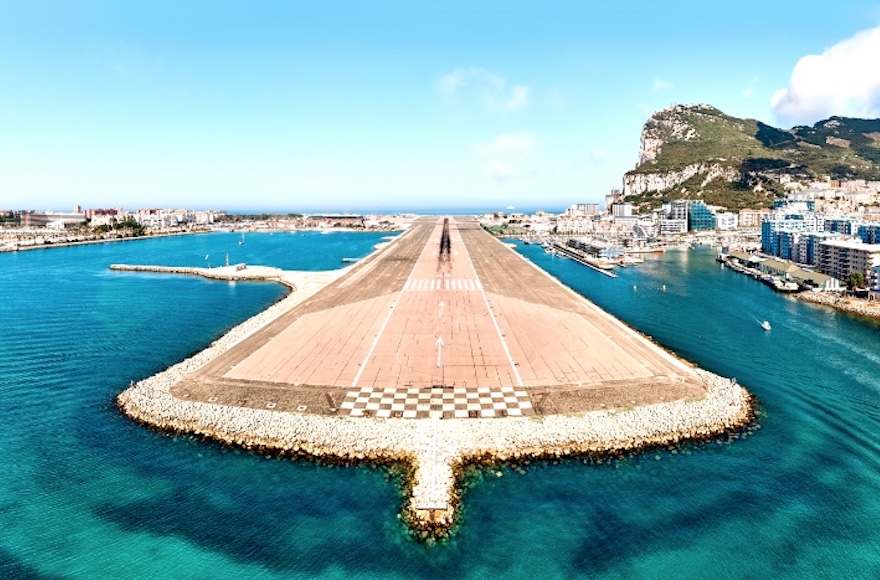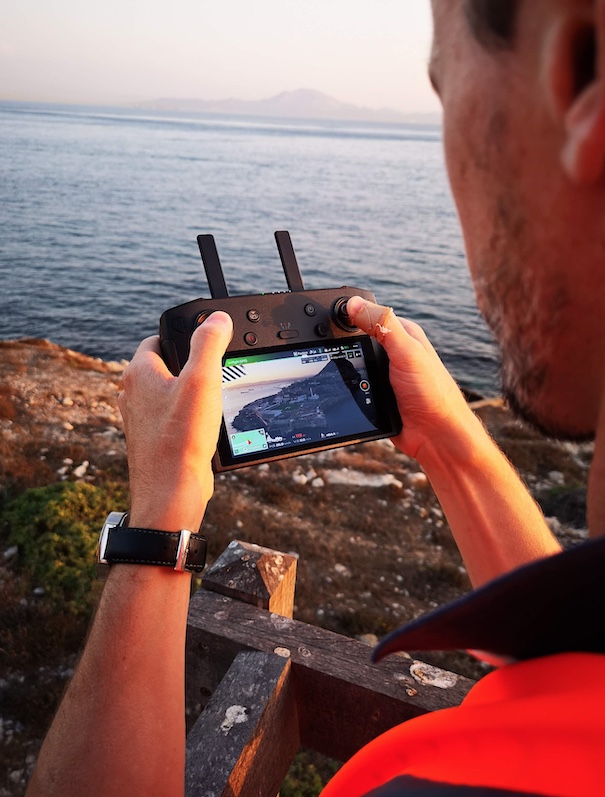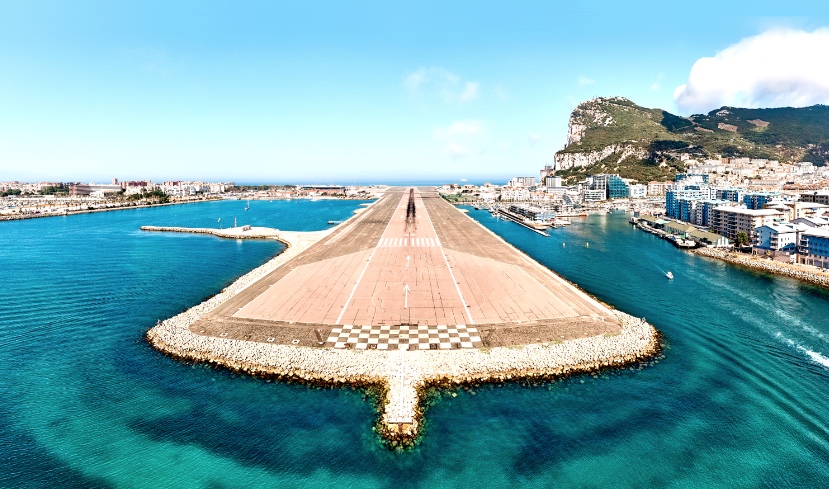You never forget your first drone
…for myself it was the DJI Mavic Air. The moment I started flying I was hooked. Being able to look at the world from a different angle and seeing things from a completely new viewing platform was something that kept me wanting more. Life from above really can throw things into perspective on how big and how small things around us really are. I knew that I wanted more so I looked into developing my hobby further and so I researched becoming an accredited drone pilot, as I just didn’t know what I needed.
I spoke with the Gibraltar Director of Civil Aviation to see what the restrictions were and what type of requirements were needed for me to fly locally. At the time, there were no sub-250g drones so I was advised that I needed an approved NQE or equivalent from a flight-training center to prove pilot competency. I looked into ways of achieving that and unfortunately there was nothing available locally, so I looked into getting certified via the UK. After looking into various training centers, I settled on working towards a certificate known as a PfCO (Permission for Commercial Operations) which was required in UK by law at the time, if flying a drone as part of a business or making any monetary benefits. I completed my training & exams in the summer of 2019. I am now affiliated and registered with the UK Civil Aviation Authority (CAA) as well as the Gibraltar CAA.
Drone flying has really taken off (if you’ll pardon the pun) in the last few years, quickly gaining popularity amongst young and old alike. It is easy to get into, with drones readily available on the high street, especially with the introduction of the sub-250g drones. Unfortunately however, many fliers are not aware of the rules, regulations and responsibilities that come with flying. In simple terms, there are two categories for flying drones – under 250g and those 250g to 20Kg. In most countries, the sub-250g drones can be flown with very little restriction or with just a simple registration required, along with a small annual fee paid etc. The most basic requirement is knowing the limits of how far the drone can be flown legally. Regardless of the size of the drone, you must always remain in visual line of sight (VLOS) which is 120m in height and 500m away from the pilot in command. You must also have sufficient clearance (which is 50m) from any people, buildings, vehicles etc. which are not ‘under the control’ of the pilot. In Gibraltar, not many know that if you plan to fly locally – no matter the size of your drone – you must have an Aerial Work Permit issued by the Director of Civil Aviation and a registration number, along with proof of appropriate insurance cover. Advance notice of your intention to fly must also be given to various bodies and authorities dependent on the flight area, such as the Police, Defense Police, Department of Environment and Port Authority, with notification given again once flying has been completed. Another must have, is that all flights have a spotter present when flying. This person is there to not only keep an eye on the drone whilst flying, but also to help deal with any obstacles in the drone’s vicinity. They are also helpful in dealing with members of the public who may come to you querying what you are doing. Sometimes these interactions with the public can be negative due to drones being fantastically cast as the bad guy’s weapon of choice in blockbuster movies, raising fears amongst the general public. If flown responsibly, then there is nothing to fear.
Flying my drones has quickly developed into a passion – I’m running out of walls at home to display my work as I have new favourites all the time! I opened a company in 2019 named Icarus, under which I have undertaken different types of jobs such as providing unique pictures of Gibraltar for a stamp collection, 3D mapping of a hard to access area, roof inspection of buildings, video footage for local promotional videos, inside cover art for manifesto publications and site scoping for construction projects to name but a few.
When engaging and hiring a drone operator it is always a good idea to investigate your drone pilots to ensure that they are fully registered and compliant with the local laws. They should also have the necessary insurance cover and be willing to discuss your ideas with you on what is and isn’t possible within the limits of the law. Any registered and reputable drone pilot will not hesitate to share this info with you. My registration can be found by searching the CAA drone operator’s database online.
Please do get in touch if you would like to contract Icarus’ service. You can view a collection of my work on the website Icarus.gi, Facebook and Instagram, under the handle Icarus Gibraltar.







